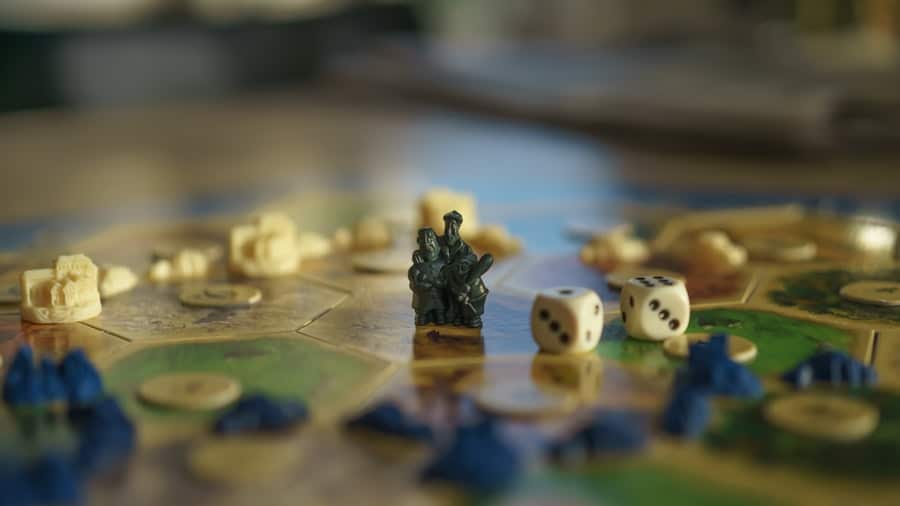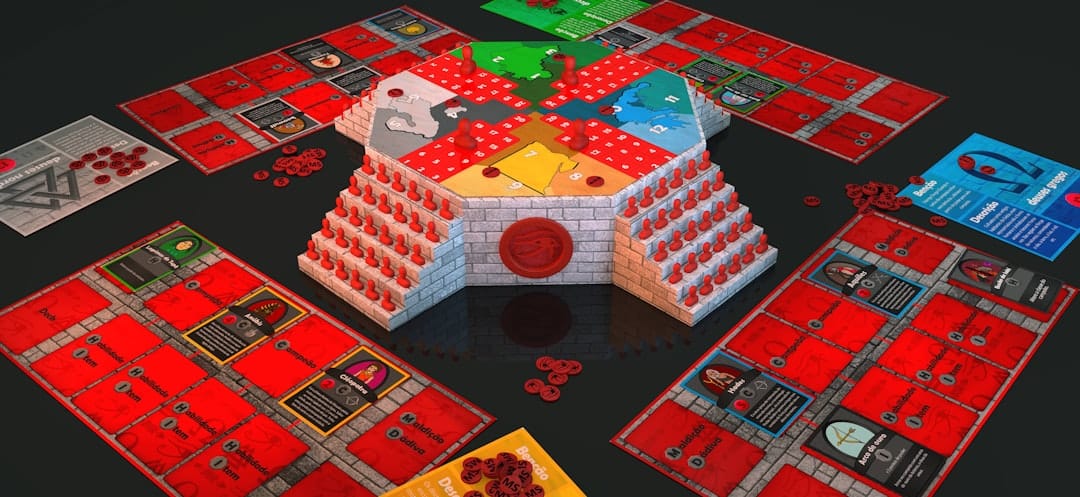The battle royale genre has emerged as one of the most significant trends in the gaming industry over the past decade. This genre, characterized by its large-scale multiplayer format where players compete against each other until only one remains, has roots that can be traced back to earlier games and mods. The concept gained traction with the release of mods for games like Arma 2 and H1Z1, which introduced players to the thrill of survival in a shrinking play area.
However, it was not until the release of PlayerUnknown’s Battlegrounds (PUBG) in 2017 that the genre truly exploded in popularity, capturing the attention of millions of gamers worldwide. The appeal of battle royale games lies in their unique combination of strategy, skill, and unpredictability. Players must not only be adept at combat but also possess a keen sense of strategy to navigate the ever-changing landscape of the game.
The tension that builds as the player count dwindles creates an exhilarating experience that keeps players coming back for more. As streaming platforms like Twitch and YouTube Gaming gained prominence, the visibility of battle royale games increased exponentially, with content creators showcasing their gameplay and strategies to vast audiences. This visibility further fueled interest in the genre, leading to a surge in player engagement and the development of new titles.
Key Takeaways
- Battle Royale games have risen in popularity due to their intense, last-man-standing gameplay and the rise of streaming platforms like Twitch and YouTube.
- PlayerUnknown’s Battlegrounds (PUBG) had a significant impact on the genre, popularizing the Battle Royale format and inspiring many other games to follow suit.
- Fortnite has dominated the Battle Royale genre with its unique building mechanics, constant updates, and massive cultural impact, appealing to a wide range of players.
- Apex Legends has influenced the genre with its innovative ping system, diverse character abilities, and fast-paced gameplay, attracting a large player base.
- Call of Duty: Warzone has emerged as a major player in the Battle Royale genre, combining the fast-paced action of Call of Duty with the Battle Royale format, and attracting a large player base.
The Impact of PlayerUnknown’s Battlegrounds (PUBG)
PlayerUnknown’s Battlegrounds is often credited with popularizing the battle royale genre on a global scale. Developed by PUBG Corporation, a subsidiary of South Korean video game company Bluehole Studio, PUBG introduced players to a vast open world where they could engage in intense firefights while scavenging for weapons and supplies. The game’s mechanics, which included a shrinking play area that forced players into closer proximity over time, created a sense of urgency and excitement that was previously unseen in multiplayer shooters.
The success of PUBG was not merely due to its gameplay mechanics; it also tapped into the social aspect of gaming. Players could team up with friends or join random squads, fostering a sense of camaraderie and competition. The game’s early access model allowed for continuous updates and community feedback, which helped refine gameplay and address issues quickly.
As PUBG gained traction, it became a cultural phenomenon, inspiring countless memes, merchandise, and even esports tournaments. The game’s influence extended beyond just its player base; it prompted other developers to explore the battle royale format, leading to an influx of new titles that sought to capture the same magic.
The Dominance of Fortnite

While PUBG laid the groundwork for battle royale games, Fortnite took the genre to unprecedented heights. Released by Epic Games in 2017, Fortnite quickly distinguished itself with its vibrant graphics, building mechanics, and unique art style. Unlike PUBG’s more realistic approach, Fortnite embraced a cartoonish aesthetic that appealed to a broader audience, including younger players.
The game’s free-to-play model further contributed to its widespread adoption, allowing anyone with an internet connection to jump into the action without any financial commitment. Fortnite’s innovative building mechanics set it apart from its competitors. Players could construct structures on-the-fly using resources gathered during gameplay, adding a layer of strategy that required both quick reflexes and creative thinking.
Additionally, Fortnite’s frequent updates and seasonal events kept the game fresh and engaging, introducing new content and limited-time modes that captivated players’ attention. Collaborations with popular franchises like Marvel and Star Wars further solidified Fortnite’s status as a cultural juggernaut, making it a household name beyond just gaming circles.
The Influence of Apex Legends
Apex Legends burst onto the scene in early 2019 as a surprise release from Respawn Entertainment, known for their work on the Titanfall series. This game brought a fresh perspective to the battle royale genre by incorporating hero-based gameplay elements. Players could choose from a roster of unique characters, each with their own abilities and playstyles, adding depth to team dynamics and strategy.
This character-driven approach not only differentiated Apex Legends from its predecessors but also appealed to players who enjoyed role-playing elements within competitive environments. The game’s introduction of a ping system revolutionized communication in battle royale games. Players could mark locations, items, and enemies without needing voice chat, making it accessible for those who preferred not to communicate verbally or were playing in teams with non-English speakers.
This feature significantly enhanced teamwork and coordination among players, contributing to Apex Legends’ rapid rise in popularity. Additionally, Respawn’s commitment to regular updates and seasonal content kept the player base engaged, ensuring that the game remained relevant in an increasingly competitive market.
The Emergence of Call of Duty: Warzone
Call of Duty: Warzone marked a significant entry into the battle royale genre from one of gaming’s most established franchises. Released in March 2020 as part of Call of Duty: Modern Warfare, Warzone combined traditional Call of Duty gameplay mechanics with the battle royale format. The game featured large maps filled with vehicles and familiar weapons from the franchise, appealing to both long-time fans and newcomers alike.
Warzone’s integration with Modern Warfare allowed players to carry over their progress and unlocks between modes, creating a seamless experience that encouraged engagement across different gameplay styles. Warzone introduced several innovative features that set it apart from other battle royale games. The Gulag mechanic allowed players who were eliminated early a chance to respawn by winning a one-on-one fight against another eliminated player.
This unique twist added an extra layer of excitement and strategy, as players could potentially re-enter the game even after being defeated. Additionally, Warzone’s emphasis on squad-based gameplay fostered teamwork and communication among players, further enhancing the social aspect that has become synonymous with battle royale games.
The Evolution of Battle Royale Gameplay

As battle royale games have evolved, so too have their gameplay mechanics and design philosophies. Developers have experimented with various features to keep the genre fresh and engaging for players. For instance, many titles have introduced unique environmental hazards or dynamic weather systems that can impact gameplay strategies.
These elements add unpredictability to matches, forcing players to adapt their tactics on-the-fly. Moreover, the introduction of seasonal content has become a staple in many battle royale games. Developers now frequently release new maps, game modes, and cosmetic items tied to specific themes or events.
This approach not only keeps existing players engaged but also attracts new audiences who may be drawn in by limited-time events or collaborations with popular franchises. The competitive nature of battle royale games has also led to the rise of esports tournaments dedicated to these titles, further solidifying their place in the gaming landscape.
The Future of Battle Royale Games
Looking ahead, the future of battle royale games appears promising yet challenging. As more developers enter the space, there is an increasing need for innovation to stand out in a crowded market. While many titles have successfully adopted elements from their predecessors, there is a growing expectation for new mechanics or gameplay experiences that can redefine what players expect from battle royale games.
One potential direction for future battle royale titles is the integration of advanced technologies such as artificial intelligence (AI) and virtual reality (VR). AI could be used to create more dynamic environments or intelligent NPCs that interact with players in meaningful ways. Meanwhile, VR could offer an immersive experience that allows players to physically engage with their surroundings in ways traditional gaming cannot replicate.
As technology continues to advance, developers will have opportunities to push boundaries and create experiences that captivate audiences in entirely new ways.
The Cultural Impact of Battle Royale Games
The cultural impact of battle royale games extends far beyond their gameplay mechanics; they have influenced social interactions, entertainment consumption, and even fashion trends. Streaming platforms like Twitch have seen explosive growth due in part to the popularity of battle royale games, as viewers flock to watch skilled players compete or engage in humorous antics during matches. This phenomenon has turned many gamers into celebrities in their own right, with personalities like Ninja and Shroud becoming household names.
Events such as Fortnite’s virtual concerts have showcased how gaming can intersect with music and entertainment on a grand scale. Additionally, merchandise related to these games—ranging from clothing lines featuring iconic emotes to action figures—has become increasingly popular among fans.
As battle royale games continue to evolve and capture public interest, their cultural significance will likely expand even further, shaping trends across various aspects of society for years to come.
In the ever-evolving landscape of gaming, battle royale games have carved out a significant niche, captivating millions of players worldwide. As detailed in the “Case Study: The Evolution of Popular Battle Royale Games,” these games have transformed from niche experiments to mainstream phenomena. For those interested in the technological aspects that support such gaming experiences, an insightful read is the article on how to choose a PC for students. This article provides valuable guidance on selecting the right hardware, which is crucial for an optimal gaming experience, especially in resource-intensive genres like battle royale games.
FAQs
What are battle royale games?
Battle royale games are a genre of video games that involve a large number of players competing against each other in a last-person-standing deathmatch.
What are some popular battle royale games?
Some popular battle royale games include Fortnite, PlayerUnknown’s Battlegrounds (PUBG), Apex Legends, and Call of Duty: Warzone.
How have battle royale games evolved over time?
Battle royale games have evolved by introducing new features, maps, characters, and game modes to keep the gameplay fresh and engaging for players. Additionally, developers have worked to improve the overall gaming experience through updates and patches.
What impact have battle royale games had on the gaming industry?
Battle royale games have had a significant impact on the gaming industry by popularizing the genre and attracting a large player base. They have also influenced other game developers to incorporate battle royale elements into their own games.
What are some key factors that contribute to the success of battle royale games?
Some key factors that contribute to the success of battle royale games include engaging gameplay mechanics, regular updates and new content, a strong community of players, and effective marketing strategies.

